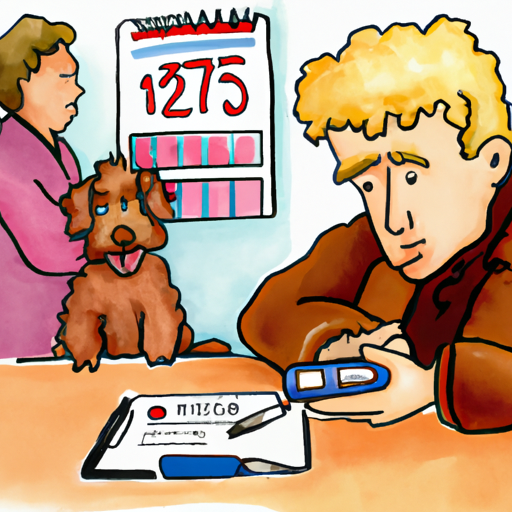Understanding Canine Diarrhea
Dear caregivers, it’s not unusual for your furry friends to suffer from an upset stomach now and then. However, when it comes to your dog’s diarrhea, understanding what’s normal and what’s not can help you discern whether it’s time to call the vet.
Diarrhea is a common symptom that can point to a variety of conditions. It could be as simple as a change in diet, or it could signal something more serious like an infection or disease.
- Mild diarrhea: Soft, slightly loose stools
- Moderate diarrhea: Liquid, pudding-like stools
- Severe diarrhea: Watery or bloody stools
Identifying Causes of Diarrhea in Dogs
Dog diarrhea can be caused by a variety of factors, including:
- Dietary changes or indiscretions
- Food allergies or intolerances
- Ingestion of spoiled food or garbage
- Parasites: worms, giardia, and coccidia
- Bacterial or viral infections
- Chronic illnesses: liver or kidney disease, inflammatory bowel disease, or cancer
Warning Signs: When to Be Concerned
As a responsible caregiver, you should always be mindful of changes in your dog’s behavior or physical condition. Here are some warning signs that your dog’s diarrhea may be more than just a simple upset stomach:
- Persistent diarrhea for more than a day
- Frequent attempts to defecate with little success
- Blood or mucus in the stool
- Accompanied by vomiting, lethargy, loss of appetite, or dehydration
Treating Your Dog’s Diarrhea
If you notice any of the warning signs above, it’s time to seek veterinary care. Your vet may recommend a variety of treatments depending on the cause of your dog’s diarrhea. These could include:
- Dietary changes: Feeding bland, easily digestible food
- Medications: Antibiotics, antiparasitics, or probiotics
- Fluid therapy: To treat dehydration
- Hospitalization: In severe cases
| Treatment | When to Use |
|---|---|
| Dietary changes | Mild cases |
| Medications | Moderate to severe cases |
| Fluid therapy | If dehydration is present |
| Hospitalization | Severe, persistent cases |
FAQs
Q: Can I give my dog over-the-counter medication for diarrhea?
A: It’s best to consult your vet before administering any medication.
Q: How can I prevent my dog from getting diarrhea?
A: Regular vet check-ups, a healthy diet, and avoiding access to garbage or spoiled food can help.
Q: When is diarrhea in dogs an emergency?
A: If your dog has persistent diarrhea, blood in stool, or shows signs of serious illness like lethargy, vomiting, or loss of appetite, seek emergency veterinary care.
Remember, as caregivers, it’s our responsibility to ensure our furry friends stay healthy. So, always keep an eye on your dog’s health and don’t hesitate to seek professional help when needed. Your dog’s health and happiness depend on it!



